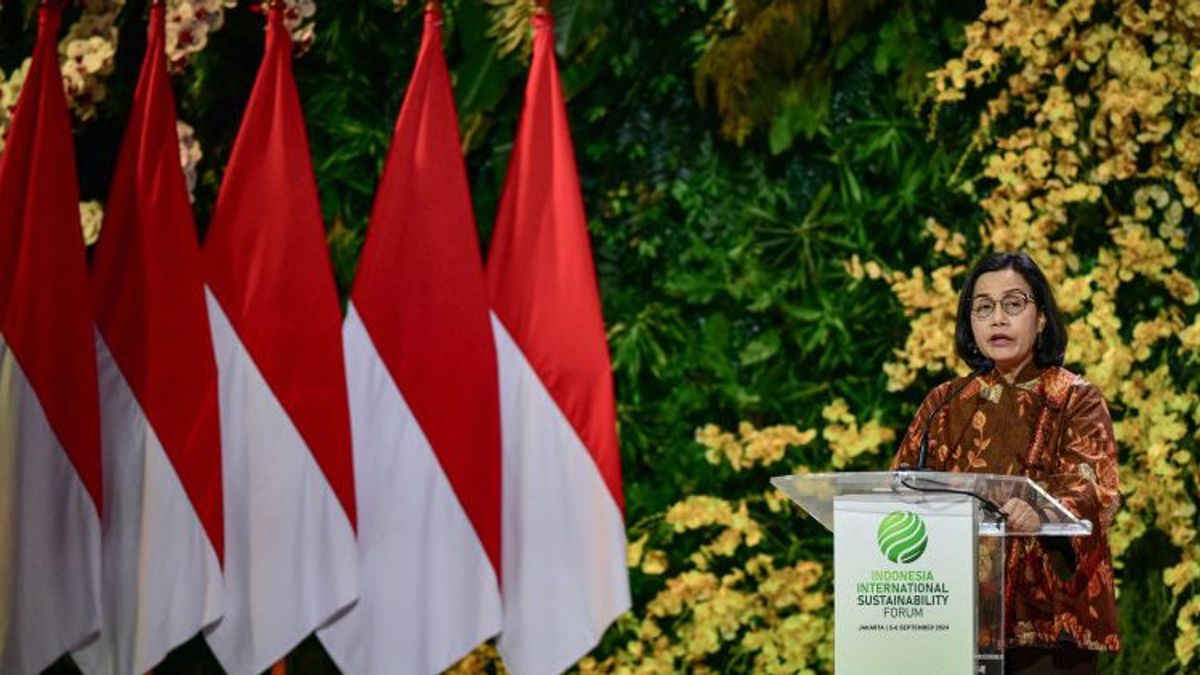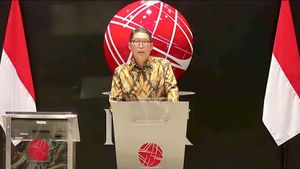JAKARTA - Finance Minister Sri Mulyani Indrawati emphasized that Indonesia's efforts to achieve the energy transition are not only a must for the environment, but also an important part of the long-term economic growth strategy.
He assessed the importance of fiscal policies that always support the energy transition in Indonesia.
Energy transition efforts should not be seen as an attempt to hinder economic growth. The energy transition must be considered and seen as the progress of economic growth for Indonesia. We will continue to formulate the right policy so that we are able to implement the energy transition," Sri Mulyani said as quoted by ANTARA, Friday, September 6.
In recent years, he said, Indonesia has issued various green fiscal policy instruments including green bonds and blue bonds, both in the domestic and global markets.
These measures are designed to raise funds from investors to finance environmentally friendly projects, such as renewable energy development and sustainable forest management.
Sri Mulyani claims that Indonesia is one of the pioneers among developing countries that uses fiscal instruments to finance green projects.
Through this policy, Srimul hopes that it can invite more participation from the private sector, both domestically and globally, to invest in green projects in Indonesia.
However, the biggest challenge facing Indonesia today is to mobilize resources that are large enough to meet the ambitious target of reducing carbon emissions.
Indonesia itself has set a net zero emissions (NZE) target by 2060 and is committed to reducing carbon emissions by 31.89 percent using its own efforts, and up to 43.2 percent with international support.
Sri Mulyani admits that the Indonesian government cannot do this alone. Therefore, collaboration with the private sector and international partners is very crucial.
"We need to continue to work hard in order to use the best instruments within the framework of Indonesian regulations, as well as at the same time communicating intensively with the private sector and other stakeholders so that we not only design, but also implement energy transitions," he explained.
The Indonesian government, he said, has also launched the Just Energy Transition Partnership (JETP) platform.
Although the implementation is still in its early stages, Sri Mulyani continues to monitor the progress and challenges that exist.
The State Treasurer also highlighted the importance of consistent carbon pricing in order to create incentives for the private sector in an effort to reduce emissions.
It is hoped that measures like this will not only accelerate Indonesia's energy transition, but also open up great opportunities for inclusive and sustainable economic growth.
SEE ALSO:
Sri Mulyani added, with fiscal policies that support and are strongly committed by various parties, Indonesia has the potential to become a global leader in financing green projects.
Indonesia will continue this important role not because we do not realize that the threat of climate change is real, but we also understand that climate change is a global problem. Global problems can only be solved effectively if all countries are willing to work together and collaborate," he concluded.
The English, Chinese, Japanese, Arabic, and French versions are automatically generated by the AI. So there may still be inaccuracies in translating, please always see Indonesian as our main language. (system supported by DigitalSiber.id)















